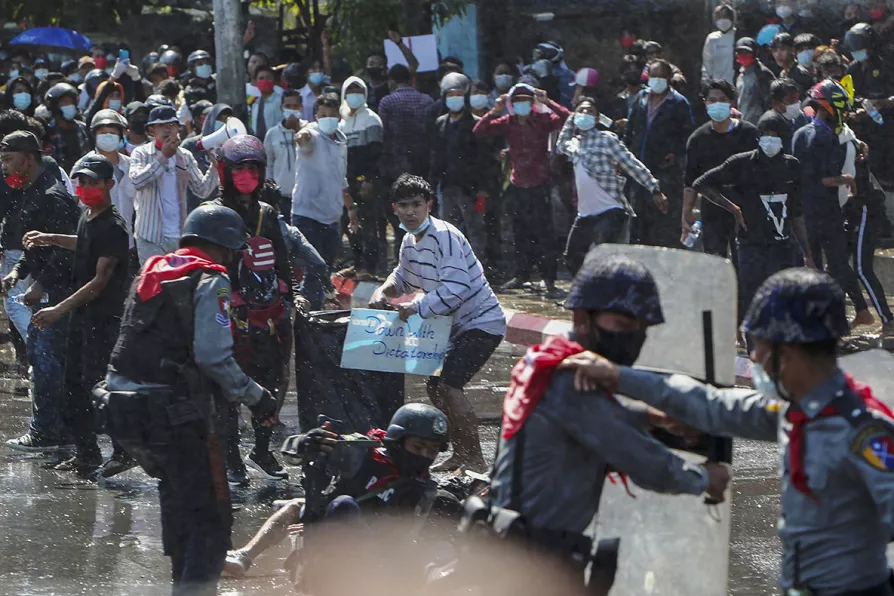Myanmar's escalating violence is worst since military takeover

 Protesters run after police shot warning shots and used water cannon to disperse them during a protest in Mandalay, Myanmar on February 9, 2021
Protesters run after police shot warning shots and used water cannon to disperse them during a protest in Mandalay, Myanmar on February 9, 2021
MYANMAR’S escalating conflict, with the worst violence since the military takeover in 2021, is having a devastating impact on human rights, fundamental freedoms and basic needs of millions of people, the United Nations has warned.
Speaking at a security council meeting on Thursday, assistant secretary-general for political affairs Khaled Khiari said that “the civilian toll keeps rising” amid reports of indiscriminate bombing by Myanmar’s armed forces and artillery shelling by various parties.
The nationwide armed conflict began after the army ousted the elected government of Aung San Suu Kyi in February 2021 and brutally cracked down on widespread protests demanding a return to democratic rule.













